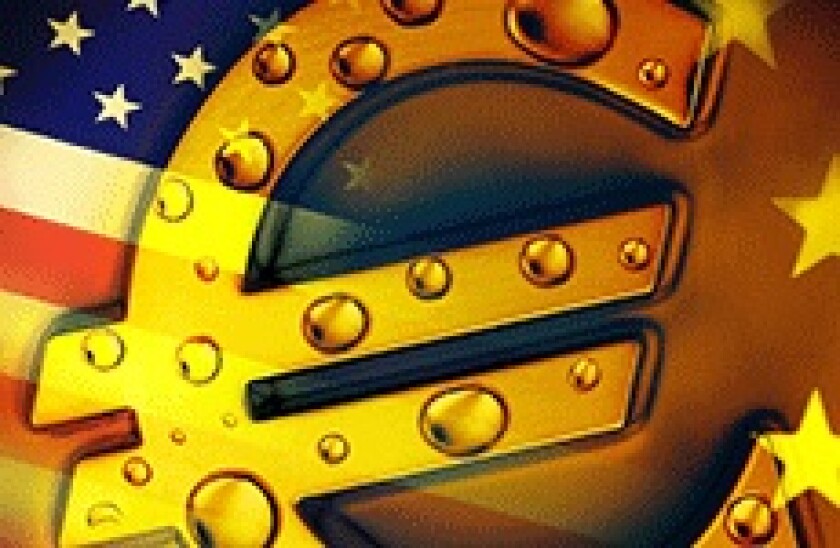Since 2012, there has been a growing wave of Asian high grade borrowers issuing euro-denominated bonds. Each year has set a new record, with $2.5bn raised in 2012, $6.4bn in 2013 and $7.5bn in 2014, according to Dealogic.
A number of factors have combined to create this supply. For a start, the more international nature of Asian businesses means that many are looking to raise currencies other than the dollar. Periodic positive swings in the basis swap have also worked in favour of non-European issuers who want to swap funding back into dollars. And European investors have been looking to diversify away from the eurozone.
Now, thanks to the ECB, the market looks to have been given another jolt. In its attempt to kick-start the ailing eurozone economy, the central bank announced last week a quantitative easing (QE) programme that involves buying €60bn ($69.3bn) in assets a month from March 2015 until at least September 2016.
If all goes according to plan, the move will lead to lower borrowing costs in the eurozone, making it cheaper to raise funds and providing a happy contrast to the US, which ended its multi-year bond purchases in October 2014 and where rates are expected to rise this year.
Better recognition
On the surface, this transatlantic decoupling looks like it could to provide an opportunistic window for Asian investment grade names in euros this year.
But Asian issuers are unlikely to have it all their own way, as the Yanks are coming. Investment grade names will be heading from the US to Europe precisely because of that decoupling. And they have plenty of advantages over their Asian rivals.
First off, US high grade corporates benefit from better recognition and a proven track record among a European investor base. Names such Apple, Coca-Cola, McDonald’s and Pepsico are truly global brands. Even some smaller US companies have a market recognition that Asian companies can’t even come close to.
With a few honourable exceptions such as Hutchison Whampoa, Asian credits have to do a lot of work to educate European investors about their credit. That includes the structural differences that are found in Asia, such as keepwell agreements and standby letters of credit.
For example, while a recent €1bn dual trancher from the world’s largest utility, State Grid Corp of China, was hailed as a great success, the state-owned enterprise is understood to have paid an additional 10bp for using a keepwell on top of the 40bp-50bp Asian premium.
In an era of economic uncertainty, with investors taking a decidedly risk-off approach, it’s going to only get harder for Asian credits to get the attention of investors.
It's not all gloomy. Asian credits can still deliver the goods to investors when it comes to yield and diversification, and that may prove to be a winning formula as markets adjust to life under eurozone QE. But if US credits prove a better draw for risk-off investors, then Asian names could find euros a tough market to crack.

